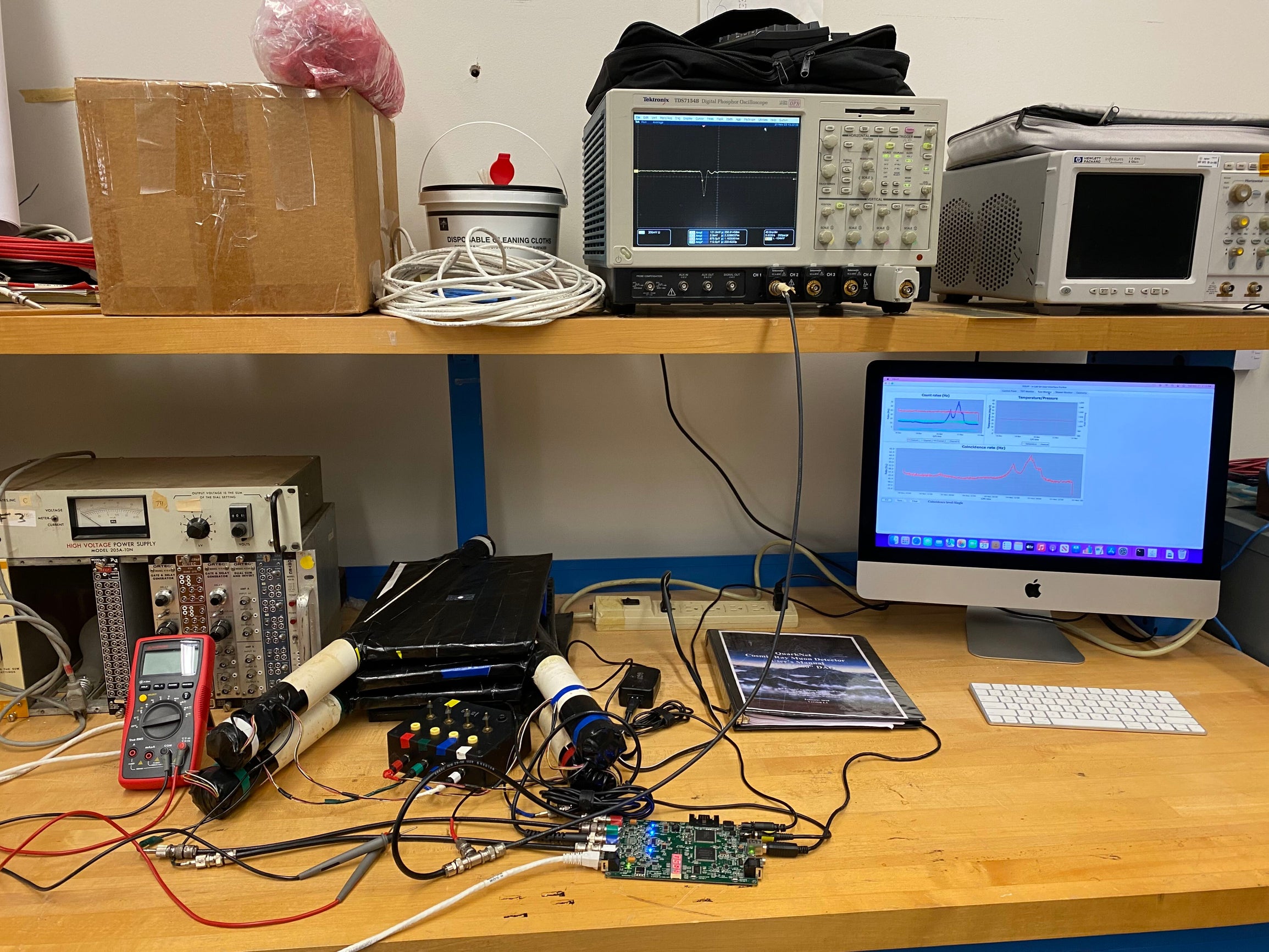
The Science of Particle Detectors
Team Advisor/PI
Project Description/Research Team Goals
Through hands-on work with existing table-top particle detectors learn about the science of particle detectors (and physics). Organize support sessions for interested highschool teachers for QuarkNet’s Cosmic Ray Detectors. Collect data from existing setups, demonstrate analyses that involve large-scale cosmic ray showers. By build new table-top detectors from scratch learn about the physics of detection principles.
Issues Addressed
- detector principles
- detector calibrations
- data analysis
- scaling the size and/or complexity of the detectors
- collaborative work
- science communication
Research Methods and Technology
- Configuration and calibration of existing cosmic ray detectors;
- Conversion of particle interactions into electrical signals;
- Learn to work with complex experimental setups;
- Learn to analyze data;
- Present at Rice UG research fairs and QuarkNet related events.
Preferred Undergraduate Interests
- some basic familiarity with electronics (not afraid to use a soldering iron, Raspberry Pi, etc)
- interested in building stuff, i.e. “Maker” mentality
- programming basic code that interacts with or analyzes data from detectors
Academic Majors of Interest
Limited to: PHYS
Prior Preparation/Requisite Experience
- PHYS 101/111 completed and to a minimum enrolled in PHYS 102/112.
- Familiar with Linux and programming environments (e.g. Python/Jupyter, C++)
Compensation
Work study-eligible students may receive compensation from OURI.
Course Credit
Not available
Actively Onboarding New Members
Yes
Ready to Apply?
Use the linked Google Form to submit your application!
Contact
For more information, see either the team's webpage or email Prof. Frank Geurts (geurts@rice.edu).
